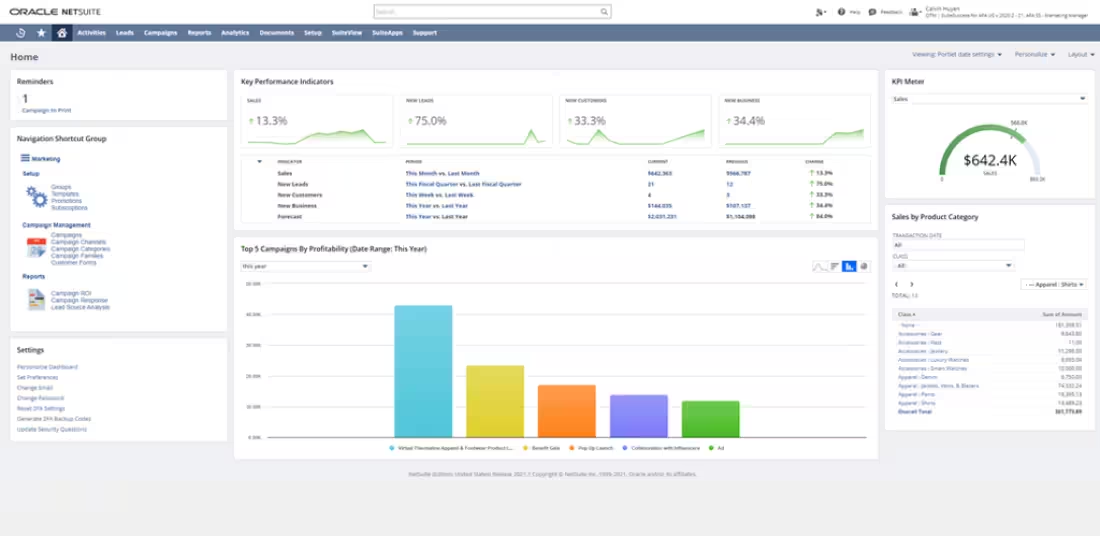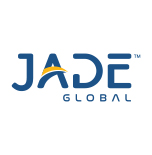Are you looking to take your NetSuite email campaigns to the next level? Whether you're a seasoned marketer or just starting out, it's important to follow NetSuite’s Email Campaigns best practices to ensure your campaigns are not only delivered, but also to drive results. Get ready to transform your NetSuite Email Campaigns from average to extraordinary!
NetSuite provides a distinctive advantage over conventional campaign channels, as it permits the user to create and send campaign emails at pre-scheduled times and dates through its campaign records.
In addition to the conventional approach, users can setup lead nurturing email campaigns in accordance with predetermined criteria and employ email campaigns as a tool for transmitting and tracking newsletters.
The email content is constructed from HTML templates designed and customized to include many personalization options such as customer or contact-specific information like their name and address.
Some NetSuite Email Campaigns best practices you should know before you create your first email campaign –
By following best practices, you can improve the deliverability of your NetSuite emails, while reducing the chances of your messages being flagged as spam.
- Review the "Optimizing Email Campaigns" guide to gain insights on achieving the best results from your campaigns.
- Setup your campaign email domain to establish a professional and recognizable sender address.
- Configure Domain Key Identified Mail (DKIM) to improve email deliverability and enhance email authentication.
- Establish your marketing preferences to ensure your campaigns align with your overall marketing strategy.
- Send subscription emails to your customers, contacts, and other recipients to allow them to opt-in to your campaigns and receive your communications.
- Avoid attempting to manage access to NetSuite by solely adding a list of NetSuite IP addresses to an access control list, as this approach may not be effective.

Discover how to efficiently carry out email campaigns in NetSuite, while also learning valuable tips to optimize your campaign's delivery.
1. Five Golden Rules for Outbound Email
- Use controlled FROM domain for emails:
Avoid using customer email addresses or sending messages on their behalf in the FROM field. Furthermore, never use a DNS record that is not under your control for sending emails.
- Manage Your Scripts:
Make it a habit to routinely review your SuiteScript outbound email scripts and remove any outdated scripts or deprecated customizations in a timely manner.
- Be Compliant:
Make sure that you have setup appropriate DNS records for DKIM on all the domains that you use to send email. Additionally, it is recommended that you establish a Domain-based Message Authentication, Reporting and Conformance (DMARC) policy record for your entire email infrastructure.
- Be Aligned:
Make sure that the MAIL-FROM (also known as ENVELOPE-FROM or RETURN-PATH) in your email relay between NetSuite and your mailbox provider, which is where the MX points passes the SPF check.
- Be Hygienic:
- Avoid sending unsolicited or unwanted email (spam).
- Limit the number of times you send the same email to avoid being perceived as spammy.
- Respect unsubscribe requests promptly and remove the recipient's email address from your mailing list.
- Refrain from sharing emails or attachments with unknown or suspicious content to prevent the spread of malware or viruses.
2. Email Domains and DomainKeys Identified Mail (DKIM)
When creating an email template, you have the option to select your company's email domain. This will replace the default netsuite.com domain that would appear in your email.
For email messages that are sent as emailed forms or are related to your transactions, you can also select your company's email domain when setting up your account. It is recommended to use domains whose DNS records you control for both the Campaign Email Domain’s Configuration and Email Setting Preferences.
The same domain that you use for your emails can also be used for DKIM email authentication. DKIM is an accepted method of ensuring the authenticity of the emails you send. Major Internet Service Providers (ISPs) such as Google and Yahoo use DKIM to identify emails in their recipients' inboxes and to verify their own email.
3. DMARC: Domain-based Email Authentication, Reporting, and Conformance.
DMARC is a tool that domain administrators can use to control how emails from their domain are perceived by receiving systems. By specifying which validations (SPF, DKIM, or both) will pass, DMARC ensures that emails are sent by the sender identified in the "From" address, providing a layer of security against spoofing and phishing attacks.
It is recommended to configure a DMARC policy record with your domain provider, which is a DNS TXT resource record. The minimal valid DMARC policy record is v=DMARC1; p=none. For effective analysis of email deliverability, specify one or more email addresses for receiving reports of aggregated feedback, using the rua tag to list them in your DMARC policy. For example, rua=mailto:aggrep@example.com.
4.Sender Policy Framework (SPF)
SPF is a validation system used in Simple Mail Transfer Protocol (SMTP) to authenticate the IP address of an email sender. Its purpose is to help domain administrators specify which servers are authorized to send emails on behalf of their domain. It is no longer necessary to align SPF with your DMARC policy record when sending emails from NetSuite. It is recommended to only setup an SPF record when required by the email system of the recipient.
To setup an SPF record, a TXT record with the SPF format needs to be created using the DNS provider. When an email is received, the SMTP server checks the content of the DNS TXT record to determine if the IP address that the email message is sent from is approved for that domain.
5.Setting up NetSuite email requires initial configuration steps
NetSuite users can customize the From field and email signature. To modify the From field, access Home > Set Preferences > User Profile under the general subtab and add the desired email address. Leaving this field blank will default to the NetSuite login email.
In the email editor, users can create an email signature with images and links by going to Documents > Templates > Email Templates > New and using the rich text editor. Once the signature is completed, users should copy all the HTML code in the source view, go back to Home > Set Preferences > General > User Profile, and paste the code.
6. Some Major Benefits of NetSuite Email Campaign
- Ensure deliverability and clarity of your internal NetSuite Marketing Campaigns, while protecting your team and customers from unsolicited mail and spam campaigns.
- Determine ROI by measuring leads generated from email campaigns and view reports of email offer delivery to recipients.
- Utilize NetSuite Email Campaigns to communicate with customers, contacts, and business partners through newsletters, while tracking behavior and revenue results.
Conclusion:
NetSuite Email Marketing Campaigns can be a powerful tool for driving engagements, increasing revenue, and building stronger customer relationships. By following our best practices, you can deliver campaigns that are optimized for deliverability, engagement, and conversions.
Remember to prioritize segmentation, personalization, and testing, and always keep your audience's preferences and behaviors in mind. With the right strategy in place, your NetSuite Email Campaigns can become an asset to your business and help you achieve your marketing goals. So, go ahead and put our tips into practice, and watch your campaign results soar!
Click to learn more about Jade's NetSuite services













